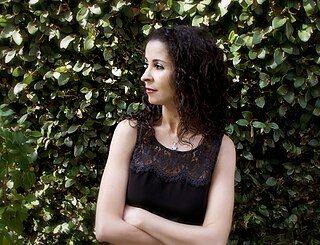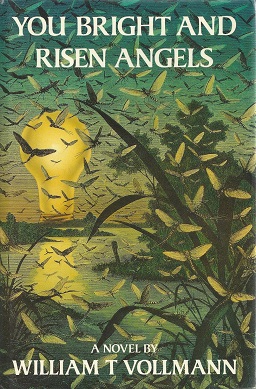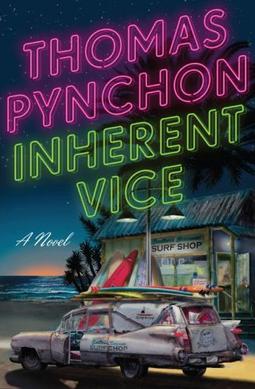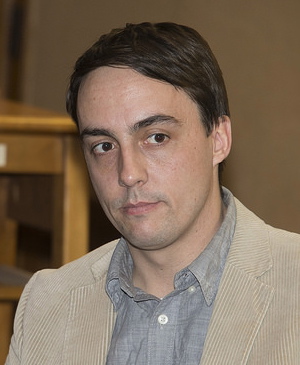
Thomas Ruggles Pynchon Jr. is an American novelist noted for his dense and complex novels. His fiction and non-fiction writings encompass a vast array of subject matter, genres and themes, including history, music, science, and mathematics. For Gravity's Rainbow, Pynchon won the 1973 U.S. National Book Award for Fiction. He is widely regarded as one of the greatest American novelists.
Patrick O'Brian, born Richard Patrick Russ, was an English novelist and translator, best known for his Aubrey–Maturin series. These sea novels are set in the Royal Navy during the Napoleonic Wars and centre on the friendship of the English naval captain Jack Aubrey and the Irish–Catalan physician Stephen Maturin. The 20-novel series, the first of which is Master and Commander, is known for its well-researched and highly detailed portrayal of early 19th-century life, as well as its authentic and evocative language. A partially finished 21st novel in the series was published posthumously containing facing pages of handwriting and typescript.

Vineland is a 1990 novel by Thomas Pynchon, a postmodern fiction set in California, United States in 1984, the year of Ronald Reagan's reelection. Through flashbacks by its characters, who have lived the sixties in their youth, the story accounts for the free spirit of rebellion of that decade, and describes the traits of the "fascistic Nixonian repression" and its War on Drugs that clashed with it; and it articulates the slide and transformation that occurred in U.S. society from the 1960s to the 1980s.
Edward Payson Whittemore was an American novelist, the author of five novels written between 1974 and 1987, including the highly praised series Jerusalem Quartet. He had started his career as a case officer in the Central Intelligence Agency's Directorate of Operations between 1958 and 1967.

Andrew Norman Wilson is an English writer and newspaper columnist known for his critical biographies, novels and works of popular history. He is an occasional columnist for the Daily Mail and a former columnist for the London Evening Standard. He has been an occasional contributor to The Times Literary Supplement, New Statesman, The Spectator and The Observer.

Jay Parini is an American writer and academic. He is known for novels, poetry, biography, screenplays and criticism. He has published novels about Leo Tolstoy, Walter Benjamin, Paul the Apostle, Herman Melville, and a novelized memoir about his road trip with Jorge Luis Borges.

Don Winslow is an American political activist and retired author best known for his crime novels including Savages, The Force and the Cartel Trilogy.

Laila Lalami is a Moroccan-American novelist, essayist, and professor. After earning her licence ès lettres degree in Morocco, she received a fellowship to study in the United Kingdom (UK), where she earned an MA in linguistics.
Evan Dara is an American novelist. He has published four novels and one play, which are concerned with subjects including social atomization, music, political dysfunction, epistemology, ecology, and time. The Times Literary Supplement (London) called Dara "one of the most exciting American novelists writing today."

Epoch is a triannual American literary magazine founded in 1947 and published by Cornell University. It has published well-known authors and award-winning work including stories reprinted in The Best American Short Stories series and poems later included in The Best American Poetry series. It publishes fiction, poetry, essays, graphic art, and sometimes cartoons and screenplays, but no literary criticism or book reviews.

You Bright and Risen Angels is a 1987 novel by William T. Vollmann, detailing a fictional war between insects and the forces of modern civilization. Vollmann described the book, his first, as "an allegory in part", inspired by his experiences with the mujahedeen in Afghanistan. The novel is subtitled "A Cartoon." It is illustrated by the author.

Edgardo Vega Yunqué was a Puerto Rican novelist and short story writer, who also used the pen name Ed Vega.

Inherent Vice is a novel by the American author Thomas Pynchon, originally published on August 4, 2009. A darkly comic detective novel set in 1970s California, the plot follows sleuth Larry "Doc" Sportello whose ex-girlfriend asks him to investigate a scheme involving a prominent land developer. Themes of drug culture and counterculture are prominently featured. It is considered a postmodern novel that warps the stylistic conventions of detective fiction. Critical reception was largely positive, with reviewers describing Inherent Vice as one of Pynchon's more accessible works. The novel was adapted into a 2014 film of the same name.

Matt Gallagher is an American author, veteran of the Iraq War and war correspondent. Gallagher has written on a variety of subjects, mainly contemporary war fiction and non-fiction. He first became known for his war memoir Kaboom (2010), which tells of his and his scout platoon's experiences during the Iraq War.
The bibliography of the American novelist Thomas Pynchon includes both fiction and nonfiction works.

Rudy Ruiz is an American writer, advocate, and social entrepreneur. Ruiz is known for writing The Resurrection of Fulgencio Ramirez and Valley of Shadows, magical realism novels which received critical acclaim and literary awards.
Liana Burgess was an Italian translator and literary agent who was the second wife of English writer Anthony Burgess. Burgess and Macellari had embarked on an affair while Burgess was married to his first wife, and Macellari gave birth to a son nine months after their meeting. The couple became tax exiles in the late 1960s, living in Malta and Italy, and spent several years in the United States. They finally settled in Monaco. Macellari played an important role in Burgess's later literary career, negotiating film rights and acting as his European literary agent, and translating his novels.
Rosalind Barber is an English novelist, poet and academic.
Alexandria Constantinova Szeman is an American author of literary fiction, poetry, true crime, memoir, and nonfiction. Her poetry and first three books were originally published under the pseudonym Sherri Szeman.
Dan Blum is an American author. His most recent book is The Feet Say Run, a literary novel set in World War II. The novel tells the tale of Hans Jaeger in Nazi Germany, the Jewish girl he loved, and his years fighting with the Wehrmacht.











